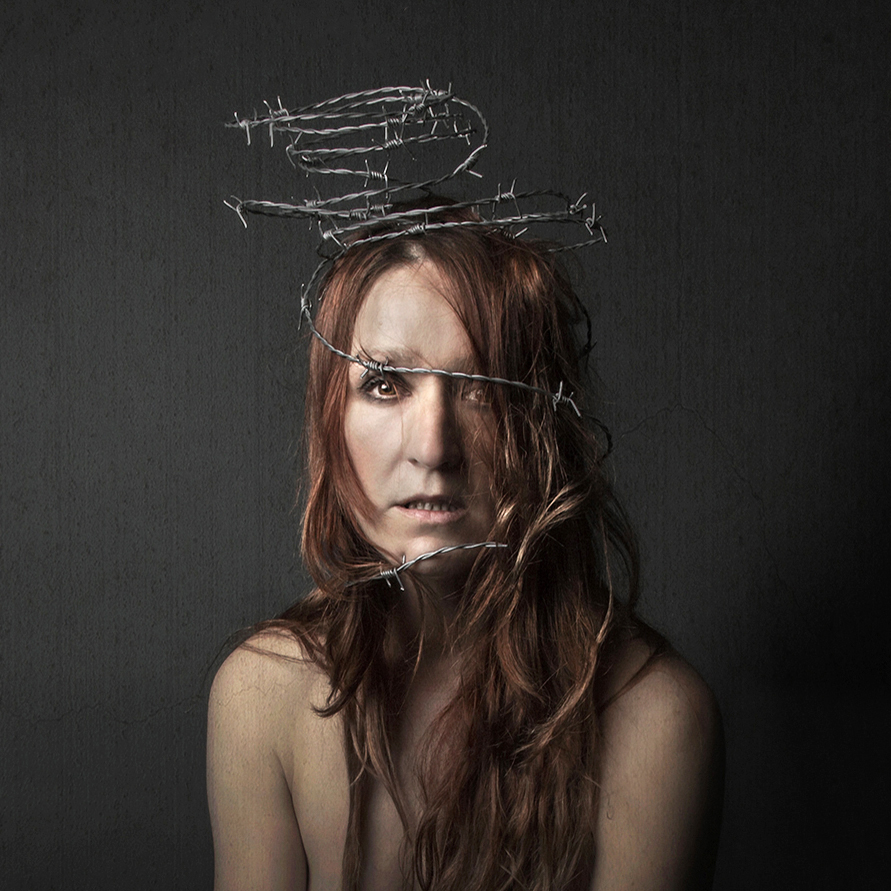
After years of depression and a suicide attempt in my early twenties, I began 25 long years in and out of talking therapy. At the beginning of 2018 I had become very tired of talking and decided to do something different, so I sat with my most difficult emotions and photographed was what there.
I was ready to look myself in the eye, to see what I was going through and to face myself fully – it was a self-portrait shoot where I expressed all my vulnerability and pain. I didn’t know what to expect from the images (I hadn’t thought about how I might react, what I’d think or what they might teach me) but looking back at me was a woman desperate for care and love and the only person who could do that for her was me. The images changed what I thought about myself, what I said to myself, what I saw in myself, what I did to myself. I could not deny what was looking back at me, what I was witnessing, and I experienced a new and deep compassion for myself that has remained ever since. It was the start of a more authentic and holistic approach to my recovery. This powerful creative process had become the most pivotal part of my healing.
During my years of therapy, I had begun to get really desperate – I started thinking that I might remain in my black hole for the rest of my life (up until my self-portrait shoot I was pretty much sure of it). I’d often end with a counsellor feeling a bit better but it wouldn’t last. What was I doing wrong? Why wasn’t it working?
Then I’d sink back into terrible depression and I’d remain there until it got so bad, I’d need to search out someone new to talk to. Making that first step was always the most difficult and doing it time after time was becoming exhausting. I got into the habit of opening each stretch of therapy with something along the lines of, ‘This is the last time I’m doing this, it’s my last chance – if it doesn’t work, I haven’t got the energy to do it again. I’ll just have to accept that this is the way I’ll be forever.’ I’ve lost count the number of times I said this.
Looking back, I’ve realised that however close I came, I never gave up hope. I never gave up thinking there must be something or someone that would make the difference I needed and I found some brilliant counsellors once I knew where I needed to look.
The something that made the most difference to my mental health was my self-portrait shoot; the someone that helped me turn my most significant corner was me.
Kathryn Chapman is a photographer, speaker and mental health advocate based in Surrey, UK. She is the creator of Face to Face, was recently a guest on the One Track Minds online show and is proud to be featured in the global Uninvisibility project. Kathryn has had images featured in Tatler, Hello! and Equal magazines.

